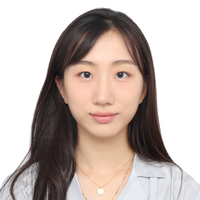Modeling the Retrieval of Counterfactual Thoughts
People often think about counterfactual possibilities to an event and imagine how it could have been otherwise. The study of how this occurs is central to many areas of cognitive psychology, including decision making, social cognition, and causal judgment; however, cognitive models of the memory processes at play during the generation of counterfactual thoughts have not yet been developed. Inspired by theories of list recall and semantic memory search, we build a formal model that examines how a sequence of counterfactual thoughts is retrieved from a set of all possible counterfactuals. Our approach takes the form of a Markov random walk over items in memory and allows for the activation of a counterfactual item to depend on its desirability, probability of selection, language frequency, and semantic similarity with the previously retrieved item. In this way, our model parametrically instantiates prior theories of counterfactual generation within a statistical model that can be fit to data from counterfactual generation tasks. Across three experiments, we show that our model describes and predicts the sequence of counterfactual thoughts that come to mind in response to a particular event, as well as the effects of these counterfactuals on subsequent evaluations and decisions. Our model can also explain key qualitative patterns in counterfactual generation and model the effects of contextual variables such as priming. Overall, our work shows how existing theories of counterfactual generation can be combined with quantitative models of memory search to provide new insights about the generation and consequences of counterfactual thinking.

Comments
Hi Feiyi, This is a very…
Hi Feiyi,
This is a very elegant, analytically sophisticated project, and it's neat that you found the results that you did. I do have some questions about the generalizability of these findings to real world scenarios. I was actually really excited when I saw your title, because counter-factual thinking is very important in clinical psychology (my field). Anxiety and depression are often characterized by negatively distorted counter-factual thinking (either memories of the past or anticipation of awful things happening in the future) and clinical interventions can often use the generation of alternative counter-factual images and thoughts to help. (For example, someone who imagines the airplane they are in exploding and falling out of the sky is going to feel very anxious, but they can be helped to feel less anxious by teaching them to imagine good outcomes instead. Someone who experienced a trauma at an early age can find it very healing to do imaginal restructuring, in which protective counter-factual experiences are imagined - like their adult self being there to protect their child self from the perpetrator of the trauma.) I think the thing that is confusing me a bit about your study is the difference between "retrieval" of counterfactual elements (like a country name) versus generation of novel counter-factual elements. Your study is about memory, and you did have the subjects themselves generate the lists earlier, so they really were remembering them. But a lot of counter-factual thinking must be spontaneously generated. (For example, remembering an argument with someone, you might think "I wish I had said X instead." That's not memory - it's imagination.) Can you think of a way to disentangle these memory effects (which you model so elegantly) from the impact of imagination in generating novel elements?
Looking forward to hearing your thoughts.
Cheers,
Dr. Hunt
Reply to Dr. Hunt
Hi Dr. Hunt,
Thank you so much for your question! Yes, counterfactuals definitely go beyond what is in memory, and one can argue that there are infinite alternative possibilities to an event or outcome. The reason that I focus specifically on memory in this study is because that memory mechanisms were not examined nor controlled for in previous studies, and that this design makes it possible to get people's desirability ratings on all possible things that might come to mind as counterfactual thoughts (e.g., all countries in the world). My task would not work if, for example, participants could make up places they would like to go for a vacation.
Studies in the field of neuroscience have found that counterfactual thinking, memory, and future thinking all involve a similar neural network. My hunch is that they play a similar role and would be hard to be disentangled. In addition, I think the way that imagination influences counterfactual thinking might be similar to the effects modeled in this study. For example, you mentioned that someone may imagine the airplane they are in exploding and falling out of the sky. This is apparently not a desirable outcome and people experience anxiety as a result, but perhaps these people have exaggerated beliefs about how likely the airplane could explode. In fact, likelihood of occurrence have been proposed to influence retrieval probability, and in my 399 talk we briefly went over this.
I apologize that I don't have a straight answer, and I'm happy to talk more! Thank you again for your question and for listening to my talk!
Best regards,
Feiyi Wang
Hi Feiyi This is very good! …
Hi Feiyi
This is very good! I have questions. First, how does the desirability effect tie into the fact that, in many cases, counterfactual thinking is motivated by a bad outcome? We try to imagine ways that we could have changed the outcome and avoided feeling regret. Second, what exactly does semantic similarity with reality mean? Can you give an example? Does the model say anything about how to change counterfactuals to more productive thoughts?
Thanks!
Barb Mellers